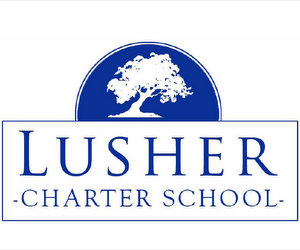The Lusher Charter School governing board has for 11 years underpaid Chief Executive Officer Kathy Riedlinger, an oversight that’s added up to about $51,700 owed in back pay, officials announced during a board of director’s meeting Saturday.
Board member Rachel Wisdom said members had every year been underpaying Riedlinger by about $4,700, or roughly 2 percent of her total salary.
Riedlinger had recently made $262,778 for running the 1,700 student, A-rated school, according to a NOLA.com analysis of federal tax forms from 2013-14. That figure made her the city’s top-paid public education leader as of last year.
Wisdom said that while Riedlinger had been consistently underpaid for more than a decade, the board’s Chief Financial Officer, Charmaine Davis, had made her aware of the problem just a couple of months ago.
“It’s a very small amount relative to what she makes, really,” Wisdom said. “But it adds up over the years.”
After no public discussion from the board, members voted to pay Riedlinger the total amount she’s due, “plus some amount for earnings she could have made on that money had she actually received it,” following through on a motion suggested by Wisdom.
The board also voted to amend Riedlinger’s contract to ensure she gets paid her full salary moving forward.
“We want to fix this and make Kathy as whole as possible without a terrible administrative burden,” Wisdom said, just before the vote.
While the board didn’t use a public forum to discuss Riedlinger’s salary and how to right the wrong of underpaying her, they did seek legal advice from the school’s attorney on the matter behind closed doors.
Prior to the vote, Lusher board members spent about 30 minutes in executive session with attorney James Brown to discuss “treatment and classification of certain compensation” for the C.E.O., according to the agenda item.
Uptown Messenger objected to the session both in an email before Saturday’s meeting and during public comment when the board called for a vote to enter the private session.
The open meetings law allows for an executive session to discuss “the character, competence, physical health or mental health of a person.”
It does not list compensation as a reason to hold a closed-door meeting.
When asked about the Open Meetings Law exceptions, Wisdom responded that she had received Uptown Messenger’s email but that it was her opinion that the executive session was “appropriate” because the school was receiving “advice from counsel.”
However, “advice from counsel” without formal written demand identifying current or pending litigation does not appear to satisfy state law, based on guidance from the Louisiana Legislative Auditor.
The auditor in August revised its guidance on the Open Meetings Law to include that “a body is not allowed to close a meeting to discuss the possibility of litigation.”
When Uptown Messenger referred to the Legislative Auditor, Brown in response said that the board wasn’t discussing “pending litigation,” but was simply exercising attorney-client privilege with its lawyer.
“The idea of me giving advice to my client in a non-privileged setting … it’s just not something lawyers do,” Brown said.
He further referred to a 2012 opinion from former Attorney General “Buddy” Caldwell that notes that some instances may call for attorney-client privilege, even if there is no pending litigation for which “formal written demand has been made.”
“We note that, depending upon the particular facts and circumstances of a situation, there are circumstances involving potential suits where formal written demand has not yet been made where there may be a legitimate need for an attorney to advise his client in a closed session,” Caldwell wrote in the opinion.
Caldwell notes that attorney-client privilege exists because a client has a privilege to refuse to disclose, and to prevent another person from disclosing, a “confidential communication” that’s made so lawyers can render “professional legal services.”
“We do note that public bodies … have an argument that any privileged information could properly be discussed in executive session,” the opinion continues. “Public bodies, like the Council, have a right to protect communications with an attorney under attorney-client privilege.”
The attorney general’s opinion also specifically states, however, that it “should not be construed as permitting an executive session … as a means to avoid the additional notice requirements.”
The Legislative Auditor, too, cautioned that the Open Meetings Law should be construed “liberally,” meaning that if there’s a question as to interpretation of the law’s provisions the entity “should provide as much access/openness as possible.”
“The Open Meetings Law operates with a general premise that all meetings of public bodies should be open to the public,” the Auditor’s opinion stated. “The burden, therefore, is on the individual seeking to engage in closed meetings to prove that an exception applies allowing the closing of the meeting.”
After the meeting came back to open session, Wisdom announced that the board was still working on the language of two subsections that will be added to Riedlinger’s contract, and that she needs “a little more help” from the board’s lawyers to do so.
“We need to amend the language because of the way that we had it worded before, the proposed fix wouldn’t work without that amendment,” Wisdom said. “That’s why I’m not going to sign anything today.”

I am happy to know that not only is the CEO of the highest performing K-12 school in the city a woman, but also that she is being adequately compensated.